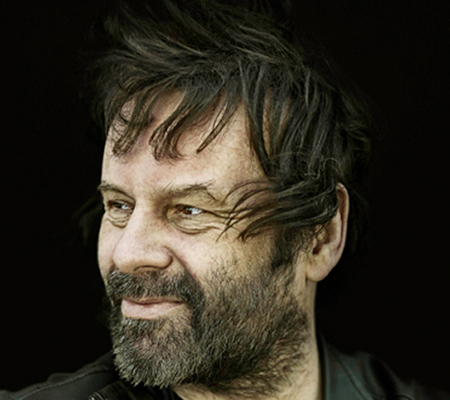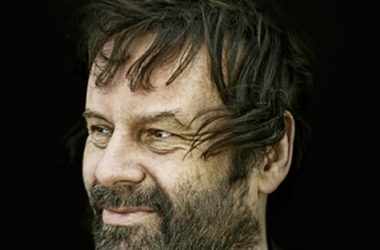By Nicky Garratt
February 22nd, 2012
My upcoming book Mango & Mint Arabian: Indian and North African Inspired Vegan Cuisine, is almost as free from rhetoric as it is from tofu. It just doesn’t seem like a reasonable platform for a sermon or a tangle of clauses and opinion. Rather, having opted to buy the book, one would think its concept was also joined, temporarily or otherwise, and one had in ones hand a manual. If you cast your mind back to DVD’s, particularly British in origin, where you are forced to watch trailers on a recorded medium you’ve already bought you’ll get the idea.
So perhaps here is the right place to outline the steps that bring me to my position in regards to vegetarianism.
Most of my life I’ve been challenged about my abstinence in regards to animal flesh, (that in itself is telling I would think), and always felt that if you have to ask you probably wouldn’t understand the answer. It almost seems that in this case the cliché holds; you get it or don’t. I understand that “cruelty-free” is not for everyone and I don’t rule out thoughtful rebuttal. (Though frankly I’ve yet to hear a convincing one). The counter position, at least for me, inevitably leads to odd lapses in logic, nihilism at odds with actual behavior or weird compartmentalizing. I should make it clear at this juncture that I’m an unapologetic materialist and cull no support from the spiritually inclined. I seem to have placed my flag in neither that ward nor the reasoned wing of the mainstream. Nevertheless the pro-science camp has a strong and growing vegetarian contingent that has formed an enclave in the rational community. It is this slim beachhead I call home.
Before the time of Charles Darwin the demarcation between human and other primates, indeed the entire animal kingdom, was deemed absolute. We alone, it was thought, were infused with divine spirit and by definition had unchallenged dominion. This convenient delusion, post On the Origin of Species, is maintained by denial of science or a narcissistic mind-set and disregard for the broader social contract with our fellow creatures. All manner of hand waving attempts to conceal that there is something very wrong here.
One common maneuver is an attempt to justify cruelty based on an equivalency between plants and animals. However behavior quickly shows this to be insincere. After all no one we know, no matter how strongly they argue that case, acts as if it’s true.
If you want to seriously forward that position then let’s look at the basis of life; genes. Genes feel like they dwell on the boarder between life and non-life, but in reality have no purpose or ability to reason, they just copy by blind chemical mechanisms. That unreasoned mandate to replicate has, by unguided selection over breathtaking expanses of time, gathered sufficiently to created carriers; plants, fish, primates, insects, fungi and so on. There is no mind, passion, or will, only fundamental laws. It is no more immoral to intervene in this process than it is to prevent a crystal from growing. It is the very fortunate by-product of this process that is of real philosophical interest: life. Without life the universe doesn’t care. As Carl Sagan put it: We are a way for the universe to know itself.
The great divide between plants and animals, although at times blurry, displays two of the more favored outcomes of this process. On the one hand developing sophisticated replicating but non-sentient structures, on the other mostly mobile, usually sentient automatons. Certainly on a chemical level neither are superior they are just channels that evolution has flooded. In this respect life is life.
However to argue that this has any baring one recursive layer up (From the chemical to the biological), is disingenuous. (Douglas R. Hofstadter’s book Gödel, Escher, Bach neatly explores some of the difficulties and paradoxes of recursive entanglement). So will we agree that, as Neil deGrasse Tyson put it, we are all connected to each other biologically, to the earth chemically, to the rest of the universe atomically? In that sense it is the biological domain I’m addressing in hope to put aside any frail “chemical” based objections. Clearly there is the obvious question of suffering. That alone should be persuasive enough, in that plants do not feel pain or loss in the way that most animals do. If that is not enough to at least give one pause then consider this. As these plant-based vessels operate without the need even of ganglia, their mandate, like the genes that constructed them, is simply to reproduce. Much of what we consider foodstuff has evolved a symbiotic relationship with the animal kingdom. They achieve their blind objective infinitely better with animal intervention and many have evolved to be entirely reliant on that intervention. Take the case of fruit. Many species require insect pollination and propagate more successfully by passing through mammalian digestive system where the seeds are released in a fresh area along with the natural manure. With modern farming techniques, (and by modern I mean of the last 10,000 years), plants are orders of magnitude more successful. I’m confident that a baron wheat stalk is not lamenting the culling of its seeds to make flour. Its blind reproductive strategy is safety in numbers and the more than half billion tons of grain harvested each year is a testament to its success at man’s hand. Even most root vegetables struggle if not thinned and again meet their perfunctory directive with far greater utility in partnership with humans.
It is not the case however with animals. We rage against the reaper. In this case the blind watchmaker has endowed us with autonomy. Mobile, animals can navigate danger, seek nutrients, plan ahead and populate previously inhospitable territory. In most cases we must guard our offspring until they too can reproduce. One by-product of a brain sufficiently large enough to endure the hazards of the environment is consciousness. Above all we can suffer.
I have heard the augments about the destruction of the environment and wildlife habitat by mega farms etc. and concede global society is far from perfect. This however is a political question not a philosophical position, (Those who know me know my distain for politics), and its not like most of the apologists abstain from grain themselves, and conveniently put aside the notion that more than half the crops in the U.S. are immediately cycled for animal feed. I also wonder why they care considering their position and must see it in the light of one of those odd compartmentalizing I mentioned. (I witnessed a conversation between two omnivores last week about how it is bad to feed bread to the ducks!).
For now I hope I have presented my position on why plants are not comparable to animals in this regard and hope to make the case for the comparative continuum and other ideas in further writings. I’m not overly judgmental over those who make different demarcation on that scale than I. At various times, over the last forty years, I have been a hardcore vegan or a vegetarian, and there have always been those on either side. What is more important to me is intent. I can concede that there are those to the right of me who have a higher ethical mandate but those a little to the left, (I say of course left and right non-politically, but I’m right handed and naturally imagine ideas on the right of a scale being stronger), are still allies. I have met many hardcore vegans who would be considered Nazis by those with an even more radical bent. Sometimes even vegan raw food is not sufficient for fruitarians. This reminds me of the excellent article by Isaac Asimov called The Relativity Of Wrong which argues that those who think the Earth is a sphere (It’s approximately an Oblate Spheroid), are not as wrong as those who claim it is flat. No matter, for me anyone on the right side of this continuum could be my ally.


